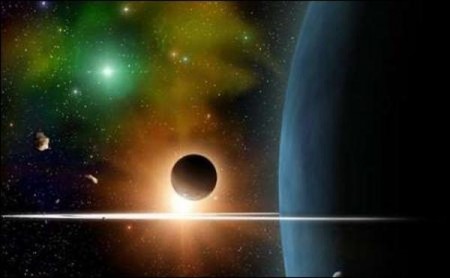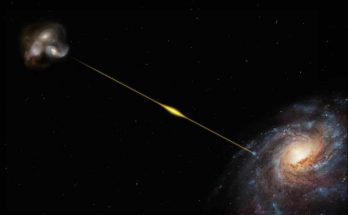Claims about a possible ninth planet in our solar system are being met with curiosity and skepticism.
Forget the “Sputnik moment.” If two astrophysicists are correct, we may be having a “Tyche moment” — a ninth planet to add to our solar system. But that’s a big “if.”
The two scientists who make the claim, Daniel Whitmire and John Matese from the University of Louisiana at Lafayette, say a planet they named Tyche — that is four times the size of Jupiter — may be lurking in the outer solar system.
The pair says that the NASA Wise telescope may already have data to prove its existence, but that the planet, if it exists, won’t reveal itself for another two years.
Two astronomers have been saying there is a planet called Tyche in our solar system, four times larger than Jupiter. However, as reports on Tuesday say, other astronomers say it probably does not exist.
Tyche exists in the outer solar system in a region called the Oort, the two astronomers said, according to the Independent newspaper. The Oort is a hypothesized cloud of comets nearly one light-year from the sun. Oort’s outer regions correspond to the outer boundary of the solar system.
“There’s evidence that some Oort cloud comets display orbital peculiarities,” astrophysicist John Matese told Life’s Little Mysteries, adding that Tyche’s existence would explain the strange orbits of comets in the cloud. “We’re saying that perhaps the pattern is indicative that there’s a planet there.”
Matese and fellow University of Louisiana-Lafayette colleague Daniel Whitmire told the newspaper they believe the mysterious planet will reveal itself in around two years. Since 1999, the two have maintained Tyche does exist and is within the solar system.
“If it does, John and I will be doing cartwheels,” Professor Whitmire told the newspaper. “And that’s not easy at our age.”
However, the International Astronomical Union (IAU) would decide Tyche’s status as a planet in our solar system. In recent years, the IAU demoted Pluto to a dwarf planet.
Matthew Holman, a planetary scientist at the Harvard Smithsonian Institute of Astrophysics, says Tyche probably does not exist, or at least within our solar system.
“Based on past papers that I’ve seen looking at where long-period comets came from in the sky, and finding signatures of large perturbers of the Oort cloud, I was not persuaded by the evidence,” he told Life’s Little Mysteries.
Planetary scientist Hal Levison with Southwest Research Institute in Boulder, Colo., made a similar statement.
“What Matese claims is that he sees an excess of comets coming from a particular place, which he attributes to the gravitational effects of a large planet in the Oort cloud,” he told the website. “I have nothing against the idea, but I think the signal that he claims he sees is very subtle, and I’m not sure it’s statistically significant.”
The Independent noted that the planet, which would likely comprise hydrogen and helium gases, should push comets from the inner Oort cloud, but this has not been observed.
Visits: 113



